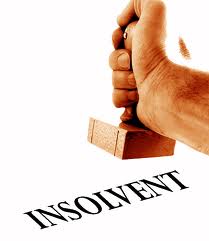
ASIC has a new publication website www.insolvencynotices.asic.gov.au for the publication of certain insolvency and other notices that operates independently of their website, www.asic.gov.au.
This site provides a free and easy to search central location for published notices on companies that are either:

To search just click on the browse/search tab and start searching. Note that the website only holds notices published from 1 July 2012.
The Australian Taxation Office (ATO) will request and collect names, addresses and other related information of taxpayers:

• eligible for Family tax benefit part B for the financial years 2010, 2011, 2012 and 2013
• who have received parental leave pay for the financial years 2010, 2011, 2012 and 2013
from the Department of Human Services, (Centrelink).
These will be electronically matched with certain sections of ATO data holdings to identify non-compliance with taxation obligations in relation to the dependant spouse tax offset under taxation law.
Records relating to approximately 1.3 million individuals registered with Department of Human Services will be matched. This program is called the Dependent Spouse Tax Offset Data Matching Program and it enables the ATO to identify and address non-compliance with taxation obligations of taxpayers incorrectly claiming the dependent spouse tax offset.
Basically if your spouse received any of the above payments from the Department of Human Services, you would not be eligible to claim the offset. The notice was published in the Commonwealth of Australia Gazette on 4 July 2012.
SuperSeeker is a secure, convenient service designed to help you keep track of and manage your super. You can use it to see a list of:

The online (https://superseeker.super.ato.gov.au/) and automated phone services are available 24 hours a day, seven days a week. If you do not have access to the internet, you can phone the ATO on 13 28 65, Fast Key Code 1 then 2.
In addition, legislation has been passed that improves the ATO’s administration of the electronic portability form. Once the associated regulations have been created, the new process will simplify rollovers for both individuals and funds. In short, you will be able to request a transfer of money between funds using a simple online form.
The enhancements to SuperSeeker improve the identity verification process, using information supplied by you (the member) to make it more secure for you to see and interact with your super online. You will need to use information from two of the following documents:
The new verification process also means that searches of SuperSeeker can no longer be done on behalf of you or for others. You (the member) will need to log in and search the system yourself.
So far this year the Australian Taxation Office (ATO) has received more than 10,000 reports on a wide range of scams including fake job advertisements, emails and bogus phone calls.
"One of the most alarming incidents is that scammers are using fake job advertisements to illegally access people's personal information. Bogus job ads are being posted on recruitment websites by scammers where people are being asked to provide their tax file numbers (TFN) as a part of their job application” said Tax Commissioner Michael D'Ascenzo. 
In some cases, people have even been offered the advertised position and then asked to provide their TFN and bank account details prior to the start date of employment and after providing this personal information, the job offer has then been withdrawn. You should not provide a prospective employer with personal details, such as your TFN or bank account details until after you begin work in the position.
ATO investigations have shown that the advertised positions never existed and those running the scams generally communicate by email or mobile phones. Scammers can use personal information to lodge false tax returns in your name, enable the use of your credit cards or even result in people taking out a loan in your name. In some cases, identity crime can take years to resolve.
At this time of year when many people expect refunds, scammers use the opportunity to pretend to be from the ATO. Only certain people and organisations can ask for your TFN, the most common being:
• the ATO, when discussing your tax records;
• your employer, but only after you start work;
• your bank or other financial institutions;
• Centrelink; and
• your superannuation fund.
Receive FREE information and advice on Accounting & Taxation every Quarter
Signup